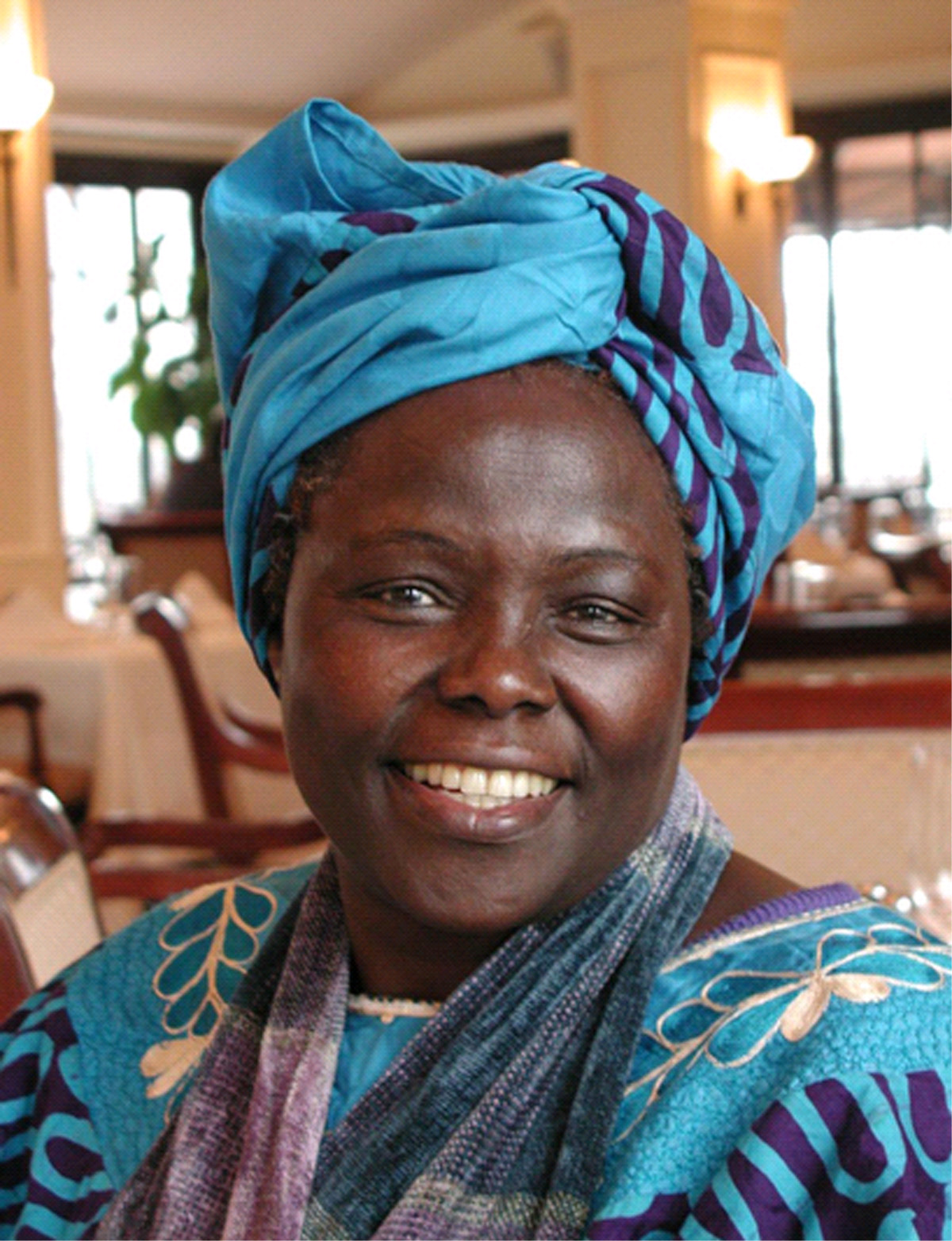
April 8, 2009 – “It is evident that many wars are fought over resources which are now becoming increasingly scarce. If we conserved our resources better, fighting over them would not then occur…so, protecting the global environment is directly related to securing peace…those of us who understand the complex concept of the environment have the burden to act. We must not tire, we must not give up, we must persist,” said Wangari Maathai in accepting the 2004 Nobel Peace Prize.
Maathai is the first African woman and the first environmentalist to receive the Nobel Peace Prize. She is the founder of the Green Belt Movement, an environmentalist, a civil society and women’s rights activist and a parliamentarian.
Maathai will speak at the University of Utah on Saturday, April 18. The event, titled, “The Challenge of Africa: A Conversation with Wangari Maathai,” will take place from 5 to 6 p.m. in the Carolyn Tanner Irish Humanities Building, Eccles Auditorium and will be followed by a book signing sponsored by the King’s English Bookstore. The event is free and open to the public, but seating is limited and tickets are required. Obtain tickets by emailing beth.swanson@utah.edu or calling 801-581-6214. Media are welcome.
Maathai was born in Nyeri, Kenya in 1940. The first woman in East and Central Africa to earn a doctorate degree, she obtained a degree in biological sciences from Mount St. Scholastica College in Atchison, Kansas in 1964. She subsequently earned her master’s of science from the University of Pittsburgh in 1966 and pursued doctoral studies in Germany and the University of Nairobi, obtaining a Ph.D. in 1971 from the University of Nairobi where she also taught veterinary anatomy.
In 1977, Maathai founded the Green Belt Movement (GBM). Based in Kenya, the GBM is one of the most prominent women’s civil society organizations, advocating for human rights and supporting good governance and peaceful democratic change through the protection of the environment. Its mission is to empower communities worldwide to protect the environment and to promote good governance and cultures of peace.
In her most recent book, The Challenge for Africa (New York: Pantheon, 2009), Maathai acknowledges that the challenges facing Africa today are severe and wide ranging. Yet what we see of these challenges in the media she argues are often tableaux vivantes connoting poverty, dependence and desperation. She presents a different vision, informed by her three decades as an environmental activist and campaigner for democracy. She illuminates the complex and dynamic nature of the continent, and offers “hard-headed hope” and “realistic options” for change and improvement.
In her talk, Maathai will address the most egregious “bottlenecks to development in Africa” occurring at the international, national and individual levels and deftly describes what Africans can and need to do for themselves.
For more information on Maathai and the GBM, visit http://greenbeltmovement.org/w.php?id=59.
The event is presented by the College of Humanities and sponsored by the Hinckley Institute of Politics, the Office of Diversity, the Tanner Center for Nonviolent Human Rights Advocacy, the Peace and Conflict Studies Program, the Nature Conservancy and the Office of the Vice President for Institutional Advancement.
